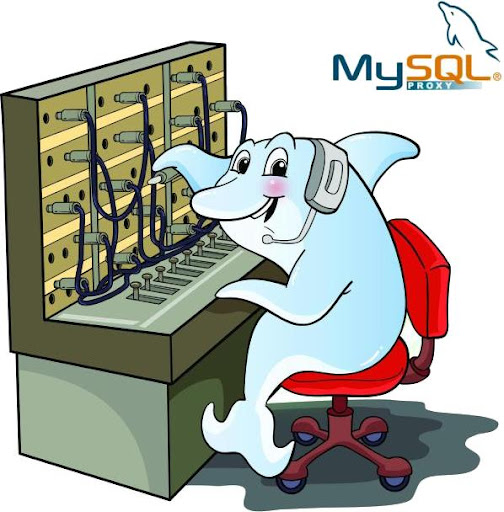
John Goulah wrote a nice quick tutorial to MySQL Sandbox.
Thanks, John!
Data seem sometimes to have their own life and will, and they refuse to behave as we wish.
Then, you need a firm hand to tame the wild data and turn them into quiet and obeying pets.
 | MySQL Proxy is back. After a long hiatus due to many deadlines in the Proxy team, the GPL version of MySQL Proxy has been updated. The most important news is the location. Proxy is now hosted on Launchpad, like many more MySQL related projects, and MySQL code itself. |
./src/mysql-proxy --plugin-dir=$PWD/plugins/ \
--admin-lua-script=$PWD/lib/admin.lua
SELECT * FROM backends (case sensitive). To use the admin interface now you need to provide a username and a password (default: root/secret).$ mysql -h 127.0.0.1 -P 4041 -u root -psecret
Welcome to the MySQL monitor. Commands end with ; or \g.
Your MySQL connection id is 1
Server version: 5.0.99-agent-admin
Type 'help;' or '\h' for help. Type '\c' to clear the buffer.
mysql> SELECT * FROM backends;
+-------------+----------------+-------+------+
| backend_ndx | address | state | type |
+-------------+----------------+-------+------+
| 1 | 127.0.0.1:3306 | 0 | 1 |
+-------------+----------------+-------+------+
1 row in set (0.00 sec)
--log-level=(error|warning|info|message|debug){resultset_is_needed = true } as third parameter. If you don't the resultset is not made available to read_query_result().
SELECT * FROM INFORMATION_SCHEMA.PROCESSLIST is equivalent to SHOW FULL PROCESSLIST. See the manuallong_query_time global variable to a fractional value. E.g. set global long_query_time=0.5; will enable queries taking more than 1/2 second to be logged to the slow queries log.